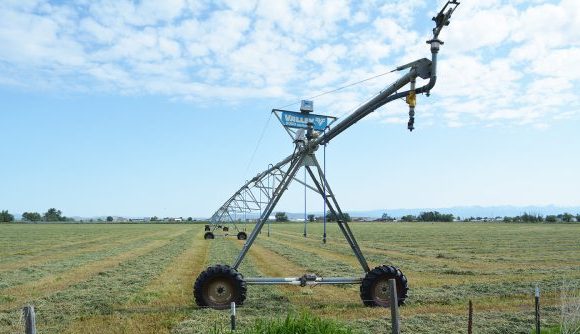Alternative ed students cope with upheaval
Published 4:00 pm Wednesday, February 23, 2005

- <I>Photo by Angela Eckhardt</I><BR>Wallowa alternative education students (from left) Brandijai Bowman, Kayla Wenke and Sarah Shoopman wonder whether their school will still exist next year.
It’s no secret that students in alternative education programs have experienced a lot in life. They are known for having lived through bigger challenges than many people face as adults.
Perhaps they are better able to handle upheaval than your average high school student, but that is little consolation to the dozens of young people enrolled in alternative education programs in the county.
Students in both the Wallowa and Enterprise programs have lost beloved and trusted teachers, the Enterprise program has been cut to half time and Wallowa students narrowly avoided their program’s closure this year. The students and remaining teachers still worry their schools will no longer exist next year.
All this comes in the wake of an ongoing state investigation of fraud in the Union-Baker Education Service District, which provides alternative education services to local school districts. The ESD handed down severe and sudden budget cuts in the beginning of 2005.
It closed the Wallowa program entirely, but the Wallowa school district opted to run it in-house so as to avoid bussing students to Enterprise.
Most of her students would have dropped out instead of going to Enterprise for school, said Colby Knifong, the Wallowa alternative education program’s new instructor.
The ESD also cut the Enterprise program back to one and a half days a week, with only one instructor instead of three.
Short year challenges Enterprise kids
Jarrad Poulson, 18, has been attending the Enterprise school since November. He liked the fact that he could go on different days each week to accommodate his job. Now his employer has to be flexible with his school schedule and he has less than 30 school days left to earn his diploma this year.
“(Under the old schedule,) I would have finished no problem,” he said. “Now it’ll be difficult.”
Poulson praised the self-paced schedule of the alternative program, saying, “Kids seem to work a lot harder when they can work on their own schedule and at their own pace.” He said students are allowed to earn credits faster in alt ed than in the regular high school.
Tarl Delyria, 18, has attended the Enterprise alternative education school for all four years of high school. Initially he went because he was getting into fights with the boys from the regular high school, including Poulson, who he says he now gets along with well.
Delyria got his G.E.D. two years ago and was enlisted in the military, but just before he was supposed to leave he was told he needed a diploma for military service.
He plans to get his diploma this year, but doesn’t like the staff cuts and shortened week. “We miss Wendy (Bliss) around here. It’s not as exciting as it used to be,” he said, referring to the departure of one of the school’s teachers.
“It drives me nuts knowing there’s nothing I can do about this,” Delyria said.
Heather Nebergall, 16, started at the Enterprise school last year and is planning to get her diploma this year. Like Delyria, she’s there because of the other students.
“I get along with these people,” she said. “They’re like me.”
Nebergall is considered a junior at this point, but worries if she had to go back to the regular school, she could only transfer seven credits, so she would be back to freshman status.
The staff changes have also been hard on her. Bliss was more than a teacher, she was a confidant, Nebergall said. “If we had a problem we could come to her,” she said.
Richard Clements, 19, has been at the Enterprise school for three years and is planning to get his diploma this year. “I’ll have to do a lot of work outside of school to finish,” he said.
He said one of the biggest problems is having one teacher spread out over all the students, who are each working on different subjects. “He does his best, and other students help out, too,” he said.
But like other students, Clements is frustrated that Union-Baker’s problems are coming down on them. “I think the people that did wrong should be punished, not the students,” he said.
Jeff Dodd, 20, entered the Enterprise program just five weeks ago after moving here from Texas, where he’d fallen behind in a very large school system. He planned to get his diploma this year, but now thinks it might be next year. As of January next year he’ll have to pay to be in the program because he will have turned 21 years old.
Dodd liked the longer schedule better because it gave him something to do during most of the week. “It’s school, but at the same time I like going to school now. I didn’t used to like it,” he said. “The more we’re here the less likely we are to get in trouble somewhere else,” he added.
Crystal Rasco, 17, also recently moved from Texas and has only been in the alternative education program a couple months. She’s there because she can bring her baby with her to school. Otherwise she couldn’t concentrate on school because she’d be worried about her baby with a stranger, she said.
Rasco wants her diploma, but fears she may have to switch to a G.E.D. course if the school closes. “I’m doing really good here. I’m passing all my grades,” she said.
Wallowa kids face unknown future
Students at the Wallowa alternative school are equally frustrated over the changes they’ve endured and concerned about the future of their school.
Sarah Shoopman, 18, and Brandijai Bowman, 19, both plan to get their diplomas this year from the Wallowa alternative program. They are disappointed that they won’t have a big graduation ceremony because the school is no longer part of Union-Baker.
The Union-Baker graduation ceremony is typically held in the packed gym at Eastern Oregon University. Now the girls are looking at a graduation for just four students. Knifong has asked to have them included in the Wallowa High School ceremony and is talking with Enterprise instructor Kent Barnes about doing a joint ceremony for both alternative education programs.
Wallowa schools superintendent John Nesemann believes the students will still be able to participate in the Union-Baker ceremony because they are still using curriculum and transcripts from Union-Baker.
The Wallowa students aren’t so worried about not finishing this year because their hours haven’t been cut. But they were very upset to see their teacher, Suzy Mayes, leave the program. Mayes taught at the school for nine years, and now teaches in Milton-Freewater.
“If it wasn’t for Suzy I wouldn’t be here. I would’ve dropped out a long time ago,” said Shoopman. “I think if they close down the alternative school they are going to have a really high drop out rate,” she added.
“There was a lot of stress when Colby first got here. We didn’t know if we’d even have a school. … She did a good job of pulling us back in,” Bowman said.
Bowman said one of the things she liked about the alternative program was the greater freedom to work independently. “If you do your work and don’t have a problem then (the teachers) leave you alone,” she said. Bowman appreciated being able to do her work at her own pace and the fact that you can get credits done faster if you choose to.
Kalya Wenke, 16, has one more year to go before she graduates. She is determined to get her diploma despite the uncertain future of the school, demonstrating the tenacious spirit found in the students of both programs. “I’ll get it one way or another because I’m just too close to quit now,” she said.









